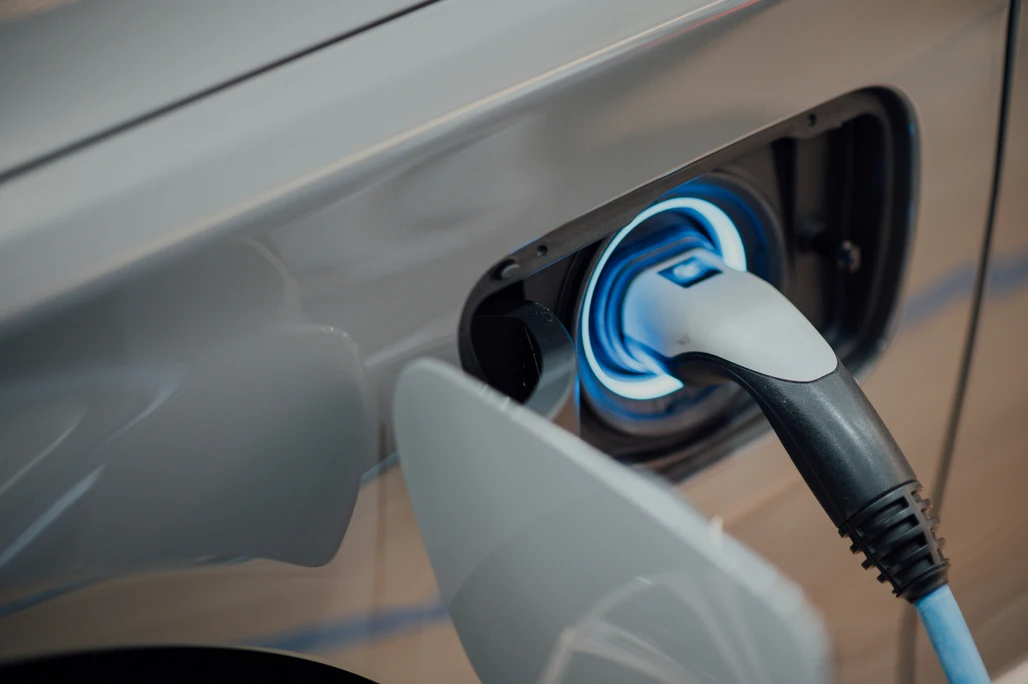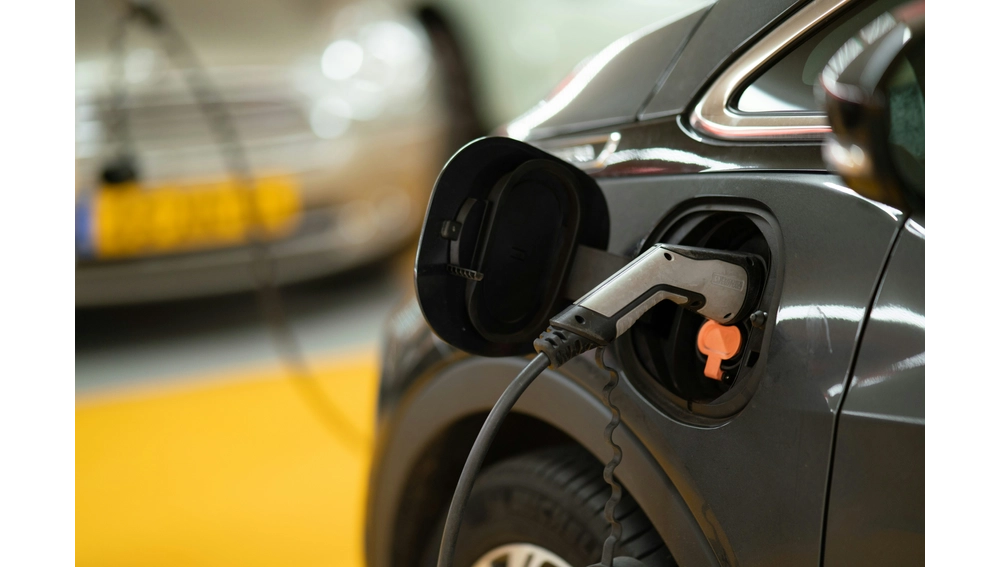Automotive batteries are a crucial part of every vehicle, but they also come with unique safety concerns. One of the most common questions is, “Automotive batteries are an example of which hazard class?” Knowing the hazard classification of these batteries is essential for safe handling and disposal. In this blog post, we will explore the hazard class of automotive batteries, why they are considered hazardous, and the steps you can take to safely manage and dispose of them.
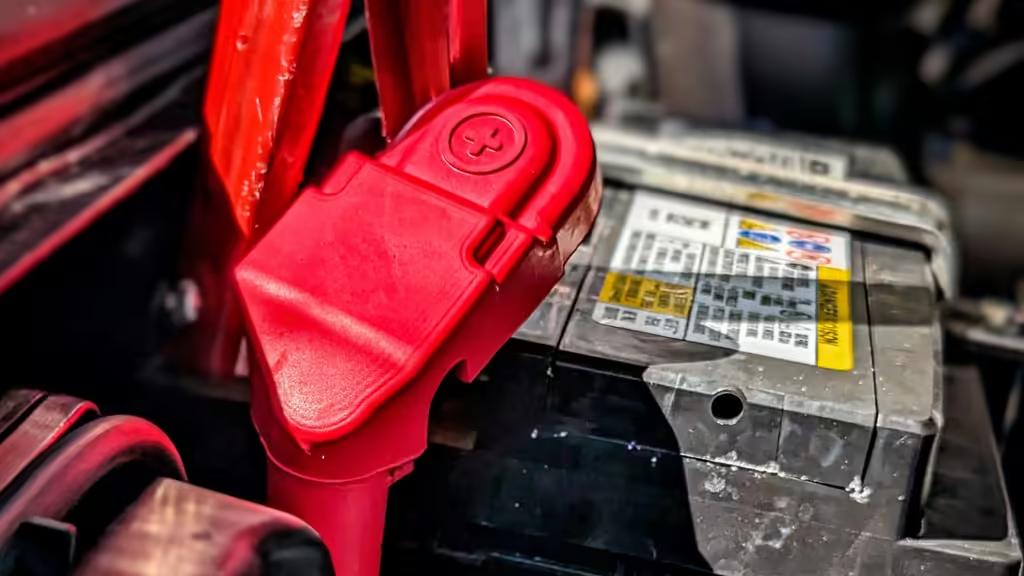
What Hazard Class Are Automotive Batteries?
Automotive batteries fall under Hazard Class 8, which is reserved for materials with highly corrosive properties. The most common type of automotive battery, the lead-acid battery, contains sulfuric acid—a substance that is not only dangerous to humans but also extremely harmful to the environment. If sulfuric acid leaks, it can cause severe burns upon skin contact and contaminate soil and water, leading to long-term environmental damage. This classification emphasizes the importance of proper handling, transportation, and disposal of automotive batteries innoviors Auto Syner.
Why Proper Handling of Automotive Batteries is Essential
Automotive batteries, particularly lead-acid batteries, contain two hazardous materials: lead, a toxic heavy metal, and sulfuric acid, a corrosive liquid. If mishandled, they pose serious risks such as chemical burns, toxic gas release, and lead poisoning. Additionally, when improperly disposed of, these batteries may leak toxic materials that can contaminate both land and water sources, making proper storage and handling crucial GarageDriver Automate Simply.
Transporting automotive batteries also requires adherence to DOT (Department of Transportation) regulations, as they are classified as hazardous materials. During transport, these batteries must be securely packed and labeled with appropriate Hazard Class 8 symbols to ensure they are handled with care Phase V.
Environmental Impact of Improper Disposal
Improper disposal of automotive batteries can result in significant environmental harm. The sulfuric acid and lead in these batteries are dangerous pollutants. If these chemicals leach into the soil, they can contaminate groundwater, harming ecosystems and entering food and water supplies. Lead poisoning is especially harmful as it accumulates in living organisms, causing long-term health problems, particularly in children and wildlife.
Moreover, sulfuric acid alters the pH balance of water bodies, potentially killing aquatic life and disrupting the local ecosystem. These potential hazards underscore why automotive batteries should never be discarded with regular household waste Automate Simply Phase V.
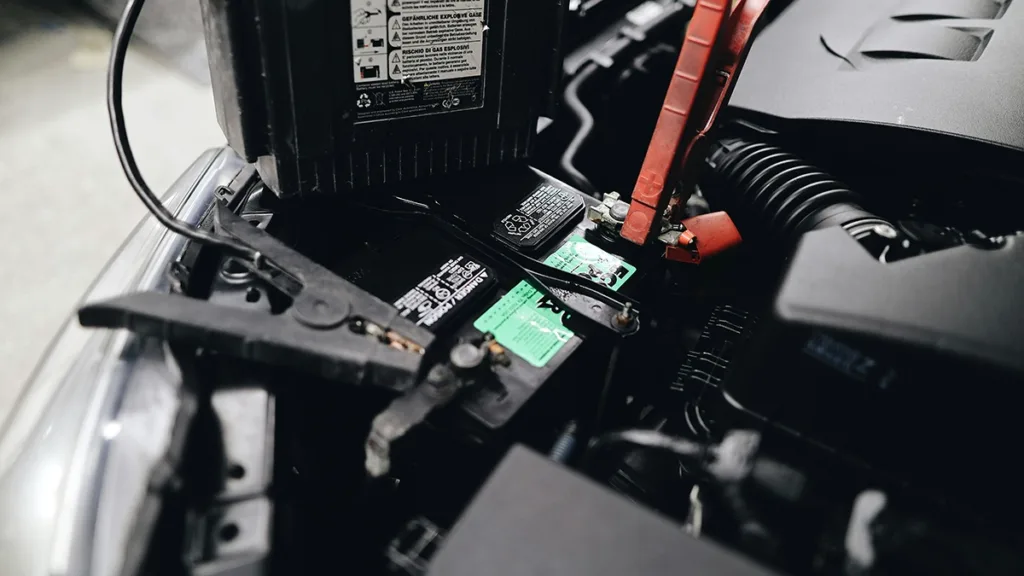
Why Are Automotive Batteries Hazardous?
Automotive batteries are hazardous primarily because they contain lead and sulfuric acid, two highly dangerous substances. Lead is a toxic heavy metal that can cause neurological damage, developmental issues in children, and reproductive health problems. If batteries are disposed of improperly, lead can leach into the soil, groundwater, and even drinking water sources, posing significant risks to human health and wildlife GarageDriver.
Additionally, sulfuric acid is a powerful corrosive agent. It can cause severe chemical burns if it comes into contact with the skin and damage surfaces it spills onto. If it leaks into the environment, sulfuric acid can drastically alter ecosystems, harming plants and animals by changing the chemical composition of the surrounding soil and water innoviors.
The Economic and Environmental Value of Recycling Automotive Batteries
While the environmental risks of improperly disposing of automotive batteries are well-known, an often overlooked aspect is the economic value of proper recycling. Automotive batteries, especially lead-acid batteries, are made from valuable materials like lead and plastic. Nearly 99% of these components are recyclable, making automotive battery recycling not only environmentally beneficial but also economically viable. Recycling centers can recover lead, neutralize sulfuric acid, and reuse plastic casings to manufacture new batteries. This process reduces the need for new raw materials, thereby conserving natural resources and reducing the environmental impact associated with mining and manufacturing The Drive Automate Simply.
In addition to preventing harmful substances like lead and acid from contaminating soil and water, recycling also contributes to a circular economy. The reuse of recovered materials reduces waste and minimizes the demand for new production, which in turn helps lower the energy consumption required for manufacturing. Furthermore, many recycling facilities and auto parts stores offer financial incentives or rebates for returning used batteries, allowing consumers to benefit financially while contributing to environmental conservation The Drive DENIOS.
Transportation Risks and Safety Measures for Automotive Batteries
Transporting automotive batteries involves unique challenges due to the hazardous materials they contain, such as sulfuric acid and lead. The U.S. Department of Transportation (DOT) classifies automotive batteries under Class 8 (corrosive substances) and Class 9 (miscellaneous hazardous materials). These classifications necessitate specific packaging, labeling, and handling requirements to ensure the safety of transport workers and the environment. During transportation, batteries must be kept upright and placed in secure, leak-proof containers to prevent acid leaks. Proper labeling is essential, with hazard symbols clearly indicating the corrosive nature of the contents Automate Simply DENIOS.
If damaged or handled improperly, automotive batteries can leak sulfuric acid, which poses serious health risks such as chemical burns or toxic fume inhalation. Moreover, batteries can emit hydrogen gas, which is highly flammable and increases the risk of fire or explosion during transport. Following proper storage and transport protocols, such as using non-conductive surfaces and avoiding rough handling, is crucial to prevent accidents The Drive Automate Simply.
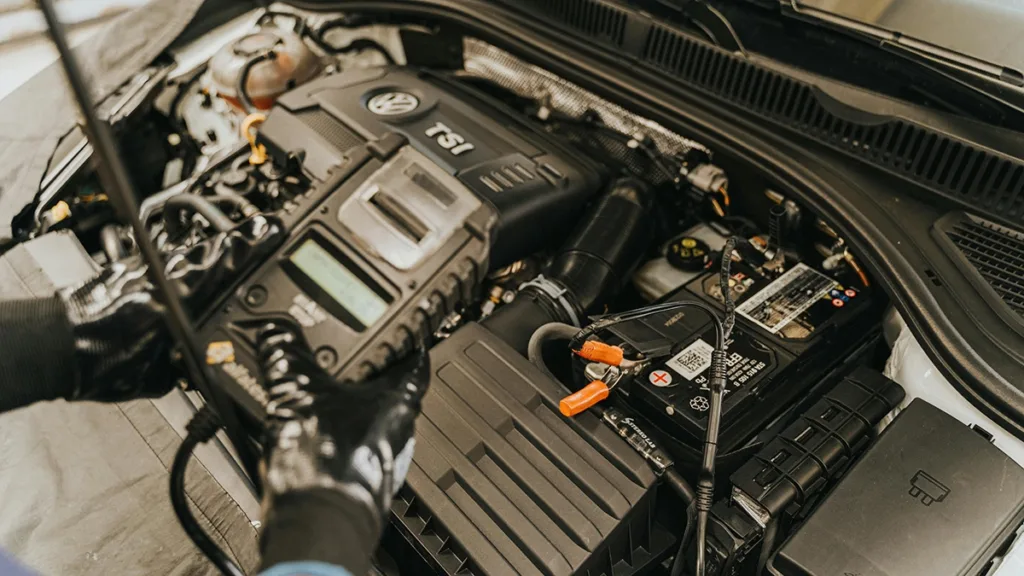
Proper Storage, Handling, and Disposal of Automotive Batteries
Due to their hazardous nature, automotive batteries must be handled with care. When storing batteries, they should always be kept upright in a cool, dry place, away from flammable materials or heat sources. Improper storage could lead to leaks or the accumulation of hydrogen gas, which is flammable Automate Simply Phase V.
When it comes to disposal, these batteries should never be thrown in the trash. Instead, consider the following options:
- Certified Recycling Centers: These facilities are specifically equipped to safely dismantle and recycle automotive batteries. Nearly 99% of the lead and sulfuric acid components can be reclaimed through the recycling processAuto Syner.
- Auto Parts Stores: Many stores that sell automotive batteries offer recycling programs. When you purchase a new battery, you can return the old one for safe disposal.
- Hazardous Waste Facilities: Local hazardous waste facilities are equipped to handle materials classified under Hazard Class 8, ensuring the safe disposal of automotive batteriesPhase V.
Legal and Environmental Consequences of Improper Disposal
Improper disposal of automotive batteries can lead to both legal penalties and significant environmental damage. Many regions have enacted laws that prohibit the disposal of batteries with household waste due to the hazardous nature of lead and sulfuric acid. Violating these regulations can result in fines or legal action innoviors Phase V.
From an environmental standpoint, improper disposal can cause long-lasting contamination. Lead poisoning from leaking batteries can devastate local wildlife, especially in aquatic environments, where it can lead to widespread ecological disruption. Moreover, sulfuric acid can alter the natural chemical balance in water sources, making them uninhabitable for plant and animal life GarageDriver.
How to Safely Dispose of Automotive Batteries
To properly dispose of automotive batteries, follow these steps:
- Use a Certified Recycling Facility: The best way to dispose of an automotive battery is through certified recycling facilities. These facilities have the technology to safely extract and reuse valuable materials such as lead and sulfuric acid.
- Take Advantage of Auto Store Programs: Many auto parts stores offer recycling services. Some even provide a rebate or store credit when you return your old battery.
- Bring Batteries to Hazardous Waste Sites: If a recycling center is not an option, your local hazardous waste disposal facility will ensure the battery is handled properly Phase V.
- Follow Local Regulations: Always check with your local government for specific guidelines regarding battery disposal. Some areas may offer collection events or special recycling programs Auto Syner.
Important to know!
1. What Hazard Class Are Automotive Batteries?
Automotive batteries fall under Hazard Class 8, which includes materials that are corrosive and can cause severe burns or environmental damage if mishandled. This classification is essential for understanding how to properly handle, store, and dispose of these batteries.
2. Can I Throw My Car Battery in the Trash?
No, car batteries contain hazardous materials like lead and sulfuric acid that can harm the environment. Throwing them in the trash is illegal in most regions and can lead to soil and water contamination. Always recycle at certified facilities.
3. Where Can I Recycle My Car Battery?
You can recycle your car battery at auto parts stores, battery recycling centers, and hazardous waste facilities. Some stores even offer rebates or discounts on new batteries when you return your old one.
4. How Do I Safely Remove a Car Battery?
Before removing a car battery, make sure the vehicle is turned off and wear protective gloves. Disconnect the negative cable first, followed by the positive cable, and then safely lift the battery, ensuring it remains upright to prevent acid leaks.
5. Why Is It Important to Recycle Car Batteries?
Recycling car batteries helps prevent the release of toxic chemicals into the environment, reduces the need for raw materials, and conserves energy. Most car batteries are 99% recyclable, making them one of the most eco-friendly products to recycle.
6. What Happens to Recycled Car Batteries?
When car batteries are recycled, their components—such as lead, plastic, and acid—are separated. The lead is reused to manufacture new batteries, while the acid is neutralized and disposed of or reused in other products.
7. Are There Fees for Recycling Car Batteries?
Fees for recycling vary by location. Some recycling centers may charge a small fee, while others, like auto parts stores, may recycle your battery for free or even offer a rebate.
8. What Are the Environmental Risks of Improper Disposal?
Improper disposal can lead to lead and acid leaking into the soil and water, causing significant damage to ecosystems and potentially contaminating drinking water. These toxic substances are also harmful to human health, especially for children and pregnant women.
9. Can I Recycle a Damaged Car Battery?
Yes, but special care is required. Damaged car batteries are more hazardous due to potential acid leaks. Always wear protective gear and notify the recycling center of the battery’s condition to ensure it is handled safely.
10. How Long Does a Car Battery Last?
On average, car batteries last between 3-5 years. Extreme weather conditions and improper maintenance can shorten a battery’s lifespan, so it’s essential to monitor its performance regularly.
11. How Much Can I Get for Recycling a Car Battery?
Some recycling centers and scrap metal dealers will pay for your old car battery because of the valuable lead content. Depending on market rates, you could receive a small rebate or gift card for each battery recycled.
12. Can a Dead Car Battery Still Be Recycled?
Yes, even a dead car battery can be recycled. The lead and other components are still valuable and can be repurposed in the manufacturing of new batteries.
13. What Are the Legal Consequences of Improper Battery Disposal?
Improperly disposing of car batteries can result in fines and legal action, as many regions have strict environmental laws regulating hazardous waste. Always recycle your battery to avoid penalties.
14. What Safety Precautions Should I Take When Handling Car Batteries?
Always wear gloves and safety goggles when handling car batteries. Avoid touching your face and ensure the battery is kept upright to prevent acid leaks. Proper ventilation is also essential to avoid exposure to hydrogen gas.
15. What Are the Best Places to Recycle Car Batteries?
The best places to recycle car batteries include auto parts stores, municipal hazardous waste facilities, and battery recycling centers. Some metal recycling facilities also accept car batteries and may pay for them based on the lead content.
Conclusion: Safeguarding the Environment and Health
Proper handling, storage, and disposal of automotive batteries are critical to minimizing environmental impact and protecting human health. As Hazard Class 8 materials, these batteries contain dangerous substances that can cause significant harm if mishandled. By following safe disposal methods, including recycling and utilizing hazardous waste facilities, we can prevent the release of toxic chemicals into the environment and contribute to a cleaner, safer planet.
Taking these small but impactful steps not only protects the environment but also ensures compliance with regulations, helping to avoid legal penalties. Ultimately, safe automotive battery disposal is an essential part of responsible environmental stewardship GarageDriver Automate Simply Phase V.
At Designs24hr, we are dedicated to empowering you with tips, guides, and solutions to lead a more eco-conscious lifestyle. From safe disposal practices to innovative smart living tools, we believe that living smarter is living greener. Stay connected with us for regular updates, and take the first steps towards a more environmentally responsible lifestyle today.


